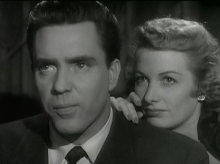I dug into these passages, and responded with some of John MacArthur's comments from my study Bible, that Christ, in His resurrected body was *glorified*, and that his appearance was altered from what it was previously (Mary Magdaline didn't recognize Him at first in John 20.) And in a larger sense, if Christ was imparting some special revelation through the breaking of bread with these two, why was it only to these two people and not all of the disciples, as recorded in Scripture?
Another thing I brought up was the idea that with Catholics/Lutherans (and the high-church denominations), my own observation is that the elements are often offered to the congregation WITHOUT the admonition/caution presented by Paul in I Cor. 11. In other words, when you attend a Catholic Mass, the priest generally says some words in Latin, then the elements are presented, unguarded (without an admonition for self-examination, resolution of sins with brother, etc.) and anyone, regardless of the state of their heart, can partake of this sacrament. I believe that Scripture cautions against taking the meal lightly, and that there needs to be a guarding of the elements, and that the meal is only observed/taken by those professing believers who have examined their hearts, completely understand the meaning of the meal, and who have no unresolved sins with their brothers. In a typical mass, ANYONE can line up to take the elements and the table is completely unguarded. I think this goes against what Paul speaks about in I Cor. 11, and is ultimately dangerous to the individual partaking of the elements (as per Paul's warning) and to the church itself. Is there a special revelation granted through partaking of the meal? I'm more convinced that the meal serves as a public reminder of Christ's sacrifice and the importance of this in the life of believers. Is there a spiritual revelation from this meal? I'm more convinced that revelation if given the believer from Scripture alone, through the work of the Holy Spirit in the heart of the believer.
Now whether or not I believe the person taking the Lord's supper elements needs to be Baptized or not, I'm not completely sure about yet. Could a newly-converted, yet unbaptized individual partake of the Lord's supper, knowing what it means and what it entails? I would say yes, although some churches (like my own) would guard the table from those who have not been baptized in Christ's name.














No comments:
Post a Comment